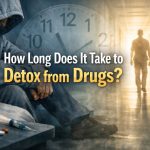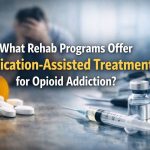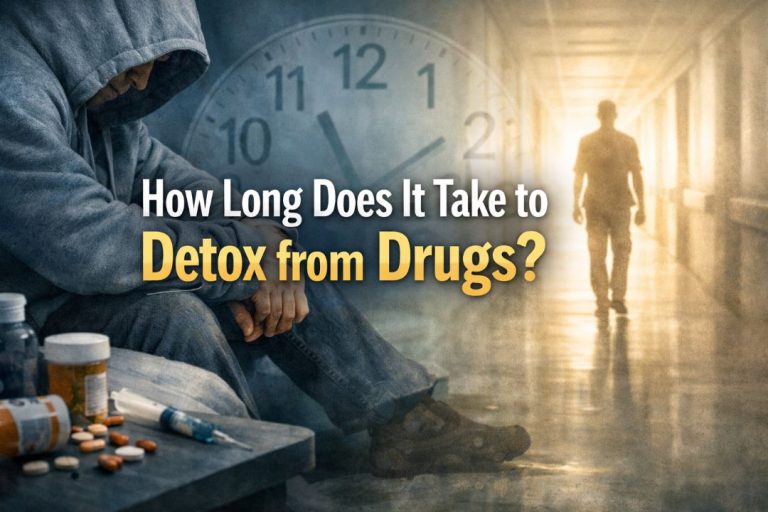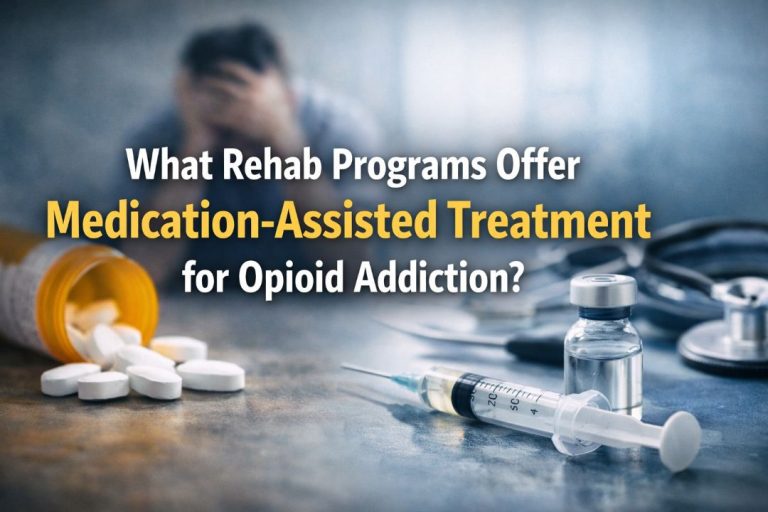Addiction is a pressing issue affecting millions globally. As drug and alcohol abuse continues to rise, many seek to understand its causes and the reasons behind dependency.
Much discussion revolves around whether addiction is a disease or a choice. Physical and psychological addictions are interconnected and influence each other simultaneously.
A more effective approach to comparing the two is to examine the dependency characteristics of each.
Physical Dependence
When people talk about being addicted to something, they often think about how hard it is to stop using it. This is especially true when someone stops taking something they are used to.
When a person uses a drug every day, their body starts to depend on it. This dependence means that their cells can’t work properly without the drug. As a result, when the person stops using, they can experience painful withdrawal symptoms. This discomfort often makes them turn back to the drug to find relief.
Withdrawal symptoms can include:
- Diahrrea
- Nausea
- Body aches
- Chills or tremors
- Confusion
Psychological Dependence
The psychological aspect of addiction involves the mind’s compulsion to use substances based on perceived needs. This can occur without physical dependency symptoms.
Psychological addiction is an emotional attachment to a substance. Intense mental cravings drive it. This type of addiction is common among people who use drugs that do not cause severe withdrawal effects.
For example, marijuana users may not see themselves as addicted because they can physically abstain. A strong craving for the drug can cause negative effects. These may include trouble sleeping, as well as more anxiety and depression.
100% Confidential Support is Available 24/7
No matter what you’re going through, you’re not alone. Our dedicated team is here to provide a safe, judgment-free space where you can talk openly and honestly. Whether you need emotional support, resources, or just someone to listen.
We’re here for you—completely confidential and always respectful of your privacy. Call us today!
Spotting the Difference Between Physical and Psychological Addiction
When a person physically depends on a substance, stopping its use can cause uncomfortable withdrawal symptoms. Psychological dependence is when a person has strong cravings to use a drug, even if it causes negative results.
It is possible to be physically dependent without psychological urges, like those using benzodiazepines for chronic insomnia. Some people may become dependent on substances like marijuana without experiencing withdrawal symptoms. This can make it harder for them to stop using it. Having a better understanding of this can help.
Contact Solutions Healthcare
Battling with Drug and Alcohol Addition? Remember, you are not alone and we are here to help you!
Key Differences in Physical vs. Psychological Dependence
- People can become dependent on a drug. This happens when they need a specific amount to feel normal. Without it, they may feel sick or experience withdrawal symptoms.
- People who are psychologically dependent on a drug often put their substance use before important responsibilities. They may focus more on getting or using the drug instead of fulfilling their duties.
- When people use prescription meds the right way for a long time, they can end up becoming physically dependent on them. This happens because some of these medications are controlled substances.
- Psychological dependence can lead people to use drugs even when it is dangerous for their health.
- Physical dependence on substances can cause changes in brain structure and function, ultimately resulting in addiction. This is often connected to mental health disorders, including depression.
- Psychological dependence can lead to ongoing problems with relationships and social interactions. This dependence makes it hard for people to connect with others and build and maintain friendships.
Similarities between Physical and Psychological Dependence
- The brain is affected physically and psychologically in similar ways. In both instances, the reward center is stimulated, which releases dopamine into the body.
- Both physical and psychological addictions can be effectively treated. Supervised detox helps with physical addiction, while therapies like psychotherapy and Cognitive Behavioral Therapy (CBT) support psychological needs. Together, they create personalized recovery plans.
- Both physical and psychological addictions are tough to tackle but can be treated. Physical addiction relies on a substance, while psychological addiction creates strong cravings. Knowing the difference is vital for treatment and recovery.
Withdrawal and Recovery from Physical and Psychological Addiction
Before starting detox or recovery, it’s important to understand addiction. Physical addiction requires treatment at a professional detox center, where medical staff can manage withdrawal safely.
Detox centers provide support and monitoring for patients. For psychological addiction, seeing addiction therapists is essential, as they specialize in this area.
If someone has both types of addiction, they need a rehab center that offers medical detox and psychological therapy. Holistic drug rehab programs can work well because they focus on both emotional and mental health. This approach provides a strong path to recovery for all types of addiction.
100% Confidential Support is Available 24/7
No matter what you’re going through, you’re not alone. Our dedicated team is here to provide a safe, judgment-free space where you can talk openly and honestly. Whether you need emotional support, resources, or just someone to listen.
We’re here for you—completely confidential and always respectful of your privacy. Call us today!
How is Physical Dependence Treated?
People can recover from physical drug addiction through medical detoxification. This process allows patients to safely stop using drugs in a place where they are monitored 24/7. Medications help relieve withdrawal symptoms during this process. This period usually lasts 2 to 10 days but can be longer if necessary.
To stop taking sleep aids and benzodiazepines, slowly reduce your dose over several weeks for safety and comfort. This personalized medical detox approach fosters a smooth recovery transition, emphasizing a path toward renewed health and well-being.
How is Psychological Dependence Treated?
Psychological addiction is treated with different types of therapy. These therapies help change harmful thoughts and behaviors that are related to substance use. Some key methods include rational emotive behavioral therapy, cognitive behavioral therapy, dialectical behavior therapy, support groups based on the 12-step model, and family therapy.
Therapy can happen in two ways. It can be one-on-one, focusing on what the patient needs. It can also be in a group, where individuals receive support from others. Most treatments last one to four months; longer programs usually help people recover more effectively.
100% Confidential Support is Available 24/7
No matter what you’re going through, you’re not alone. Our dedicated team is here to provide a safe, judgment-free space where you can talk openly and honestly. Whether you need emotional support, resources, or just someone to listen.
We’re here for you—completely confidential and always respectful of your privacy. Call us today!
Differences in treatment for Physical and Psychological Dependence
When addressing physical and psychological drug dependence, understanding their differences is crucial for effective treatment.
Physical addiction requires medical drug detoxification, which helps individuals safely manage the physical and mental symptoms of addiction. After detox, individuals are better prepared for rehabilitation to address the root causes of their drug use.
Psychological dependence may require detox in some cases, primarily to safely remove drug toxins. However, the detox process is typically less intense than for physical addiction and is not always necessary. In summary, while detox is essential for physical addiction, it is not always required for psychological dependence.
Start Your Journey and Break the Cycle
Comprehensive addiction treatment thoughtfully tackles both the physical and psychological challenges. A residential rehab program helps people who have problems with drugs or alcohol. It gives them a safe place to get better and support to stay sober in the future.
If you or someone you care about is experiencing signs of dependence, reaching out for help is a crucial step. Solutions Healthcare is dedicated to guiding you through every step of your recovery journey. Contact us today to embark on this transformative path!
References
- National Institutes of Health: Drug Dependence is Not Addiction– and it Matters
- National Institutes of Health: Are “Physiological” and “Psychological” addiction really different? Well, no!… Um, Er, Yes?
- Substance Abuse and Mental Health Services Administration (SAMHSA): Behavioral Health Trends in the United States:Results for the 2014 National Survey on Drug Use and Health






















